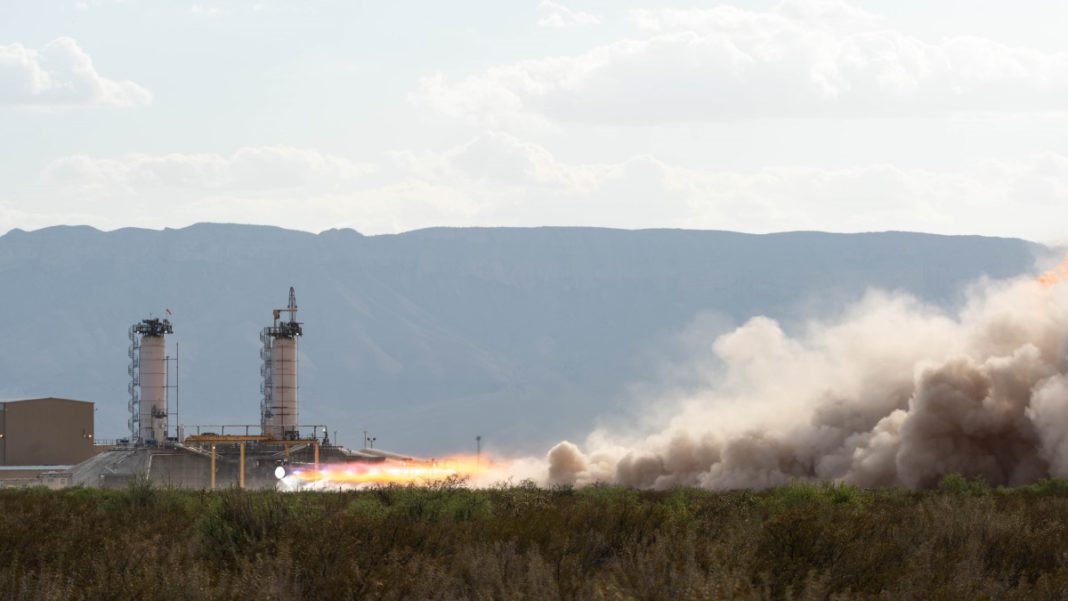UNITED STATES: In a surprising turn of events, one of Blue Origin’s powerful BE-4 rocket engines experienced a dramatic failure during testing last month.
The engine, set to power Blue Origin’s New Glenn rocket and United Launch Alliance’s (ULA) Vulcan Centaur, exploded just 10 seconds into the test conducted at Blue Origin’s West Texas facility on June 30.
The incident was confirmed by Blue Origin, which stated that no personnel were injured and that investigations are underway to determine the root cause of the anomaly.
According to reports, witnesses who saw the video footage described a dramatic explosion that destroyed the engine and caused significant damage to the test stand infrastructure.
Blue Origin was preparing the BE-4 engine for its flight on the second launch of the Vulcan Centaur. Blue Origin has promptly informed ULA about the incident, and ULA, a joint venture of Boeing and Lockheed Martin, does not consider it a significant setback at this stage.
Blue Origin clarified that the BE-4 engine had already qualified for flight, indicating its overall design is sound. The failed engine was undergoing an “acceptance test” (APT) to identify any potential issues with individual units before the flight.
ULA President and CEO Tory Bruno emphasized that ATP failures are not uncommon and are a routine part of the testing process. He further mentioned that many other BE-4 engines had passed ATP tests and completed fire tests on the launch pad.
While Blue Origin and ULA work on investigating the anomaly’s cause and implementing necessary remedial actions, ULA has been facing challenges with the Vulcan Centaur rocket.
Originally scheduled to debut in early May, Blue Origin delayed the launch after a Centaur upper stage exploded during testing at NASA’s Marshall Space Flight Centre in March.
The revised launch date for Vulcan Centaur remains to be determined, as the company will send the upper stage back to the factory for modifications.
The New Glenn rocket, powered by the BE-4 engine, awaits its inaugural flight. Initially slated for a 2020 launch, Blue Origin repeatedly pushed back the timeline due to delays in the BE-4’s development.
Blue Origin has refrained from providing a new target date for New Glenn’s debut, and industry experts are watching its progress closely.
As Blue Origin and ULA continue to investigate and address the recent engine failure, the incident highlights the challenges and risks of testing and developing advanced rocket technologies. Despite setbacks, both companies remain committed to advancing space exploration and commercial spaceflight.
The upcoming statements from ULA’s CEO, scheduled for later this week, may provide further insights into the plans for the Vulcan Centaur and the status of the BE-4 engine.
Also Read: Daniel Ricciardo Makes Sensational F1 Comeback with Red Bull’s AlphaTauri



